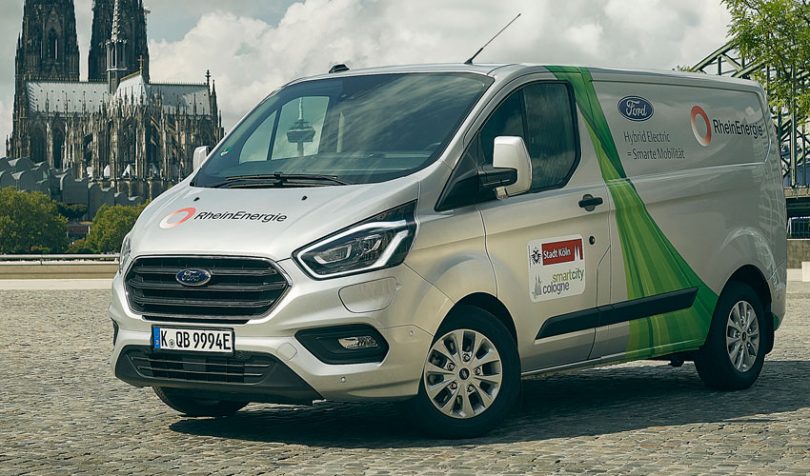Yesterday, Ford announced a pilot program in Cologne to test plug-in hybrid electric vehicles (PHEV). The 12-month trial aims to explore the use of blockchain to track the number of green miles driven by PHEVs, particularly in low emission zones in big cities. For this test, Ford is targeting commercial vehicle owners, including fleets.
Many major cities, such as Cologne and London, have geofenced zones to reduce car pollution. London has the notorious congestion charge zone in the city center. Between 7 am and 6 pm drivers have to pay £11.50 a day to enter the area. But if a car meets ultra-low emission standards, it is exempt. Drivers have to pay electronically before entering the zone or shortly afterwards. Vehicle number plates are automatically scanned on entry to monitor usage. Cologne has a similar system.
“The plug-in hybrid electric vehicle trials with our partners in the City of Cologne build upon our ongoing electrification programmes elsewhere in Europe, and bring us all closer to meeting our combined urban air quality goals,” said Mark Harvey, director, Commercial Vehicle Mobility, Ford of Europe.
Ford noted that there are challenges with these zones, both for implementing and administering them. Plus drivers have to be very alert to know when they are entering the low emission area and the hours when the restrictions are in place.
In the Cologne trial, the FordPass Connect onboard cellular modem will record the green miles on a blockchain enabling sharing with relevant parties such as the driver’s employer and the city. What’s particularly novel, is the boundaries of the low emission zone could be adapted in real-time. The vehicles could automatically switch to low emission mode by tracking the GPS location.
Ford has previously run a similar trial in London and Valencia, Spain. Speaking at the U.N. Climate Action Conference last month, German Chancellor Angela Merkel unveiled a $60 billion package to cut greenhouse gas emissions. Germany is aiming for net-zero carbon emissions by 2050, reported PRI.
“The blockchain technology we are testing here in Cologne enables secure, tamper-proof tracking and logging of vehicle emissions records, which makes it ideal for the PHEV pilot,” said Gunnar Herrmann, chairman of the management board, Ford-Werke GmbH.
The U.S. automaker has been actively participating in blockchain projects. Ford is one of the founding members of MOBI, a blockchain consortium for mobility services. Several MOBI auto companies, including Ford, are starting a U.S. trial of MOBI’s Vehicle Identity (VID) solution. Earlier this year, Ford joined another consortium with IBM and LG Chem to run a blockchain pilot for cobalt provenance. Cobalt is a key element in electric car batteries.






